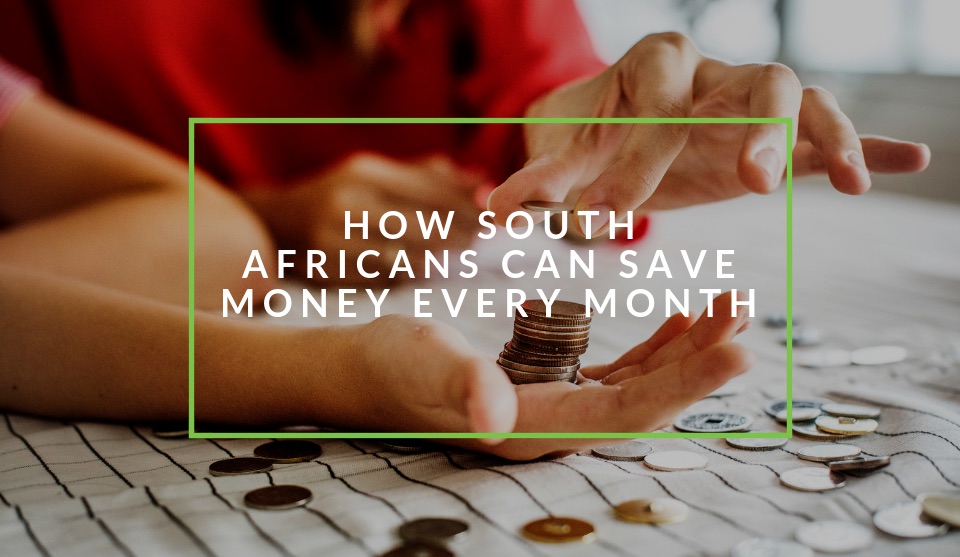Recent posts

Press Releases
Rehab Your Knee: A Free, Evidence-Based Guide to Smarter Recovery
12 February 2026

Money Talks
XRP vs. Stablecoins: Which Is Better for Cross-Border Payments in 2026?
28 January 2026

Press Releases
Sleep Expert Cautioning Against TikTok’s ‘Mouth Taping’ Trend
28 January 2026

Press Releases
Why Vintage Watches Are the Hottest Trend in 2026
27 January 2026
Popular posts
Extravaganza
Trending Music Hashtags To Get Your Posts Noticed
24 August 2018
Geek Chic
How To Fix iPhone/iPad Only Charging In Certain Positions
05 July 2020
Extravaganza
Trending Wedding Hashtags To Get Your Posts Noticed
18 September 2018
Money Talks
How To Find Coupons & Vouchers Online In South Africa
28 March 2019
How South Africans Can Save Money Each Month
02 March 2019 | 1 comments | Posted by Che Kohler in Money Talks
The South African economy has not been doing citizens any favours; we've had to deal with minimal growth, junk status downgrades, water shortages and load shedding. To try and turn things around Tito Mboweni and his team need to start scraping together funds to make sure the state can actively action changes in the interest of the people.
This isn't a great example of how to manage wealth and many South African's treats their personal economic situation with the same negligence. Many South Africans are living pay cheque to pay cheque and don't see an end in sight which isn't how you built a sustainable future for yourself and your family. Improving your financial wellbeing starts with saving, and while that may sound simple, so many South African's ignore this principle.
To help encourage South African's to save, we've put together a savings blueprint that will get you up and running and break that cycle of breaking even or living with debt.
Make saving your priority
The first step is a psychological one and probably the hurdle most people stop at, which is placing in your mind the idea that saving is your priority. Before you even pay your bills, you should be putting away part of your disposable income to work for you. Your goal should be to save at least 10% of your pre-tax earnings.
Whether you are saving for a house or your retirement, your first step will always be making your savings your first payment. Once you get into the habit of saving a little bit each month, you'll see how small changes can compound, and it will encourage you to keep paying yourself more each month as opposed to spending it on items that provide instant gratification.
Turn saving into an enjoyable act
Turn savings into a game. Instead of force-feeding budgeting tips to yourself, look at this as an adventure. Try to top your savings each month or compete with friends or spouse. You can also make savings a family affair – have a fun programme of savings for everyone to enjoy and instil a culture of saving across your household.
Start with a savings plan
The best time to start saving is always yesterday so If you know you need to save the need to save more, start saving money TODAY! Procrastination is enemy number one enemy of saving. Each day you wait you lose out on potential earnings through interest or upturn in the market, if you don't have skin in the game, you won't reap any benefits. Invest when the market is low, and you could pick up a few undervalued assets you can turn for a profit at a later stage.
It's important to invest for the long haul and be prepared to ride out the highs and lows. It may help to draw up your bucket list and separate it into short, medium and long term goals. This will play a large part in selecting appropriate savings vehicles to achieve these goals.
Create a budget
A great way to help save money is to create a budget, and then stick to it; this will give you route, oversight and a rigid structure to adhere to when you're still finding your feet when it comes to saving. Making yourself aware of where your money is going and how your spending habits compound over time can be an eye-opener for money who choose to ignore the problem.
Start by setting up an excel sheet or download one of the various budgeting apps available for both desktop or your mobile devices. Set up your monthly income and expenditure and designate that some of your money goes directly into a savings account. Once you get into the habit of monitoring how much you spend, you will be able to calculate how much your day-to-day living is costing you and continue to optimise your spending more effectively.
Budgeting will also help avoid temptations impulse buying and keep you on the straight and narrow towards your saving goals.
Define your saving goals
What is it you want to put your savings towards? It could be one goal or some goals such as:
- A car
- A house
- Your Kids
- Education
- A Tip overseas
All the above require a long term commitment to saving so place these on above your budget to remind you what you're working towards; it will help you focus and reduce the chances of you spending money on products and services that would only serve to distract you from your ultimate goal.
Reduce your monthly obligations
One of the easiest ways to let money creep out of your count each month is through various debit orders. If you have subscriptions or monthly payments like pay TV, Music Streaming, magazine subscriptions that deduct money from your account each month where you use their service or not, then its time to review these payment arrangements.
Look at the ones you need, reduce where you can or cancel all non-essential subscriptions altogether and instead of paying Netflix every month, you can pay yourself that subscription fee.
Reduce your expenses
You're not going to be able to save or increase the amounts you can save each month if you keep giving money out externally. When drawing up your budget look at all your expenses and remove those that are none essential. Additionally, from the purchases, you do make try and scale down by opting for cheaper brands or alternative products. This will help free up your current income and help you add to your savings and reach your goals a little faster
Pick a range of savings mechanisms
Once your lump sum starts to grow its time to evaluate how to make this money work even harder for you. Review the options with your bank or look at external investment opportunities to diversify your savings into various financial products that will earn you more than the minimum interest each month. As you begin to diversify your savings portfolio, you can continue to service your main savings while you look for other opportunities to invest.
Tell us your savings story
Have you started saving recently? How is it going? Do you have any tips you feel should be added to the list? Share it with us in the comments and let's help South Africans save even more.
Do you seek financial help?
Find a financial advisor or financial consultant in your area
Get started with nichemarket
If you are a financial adviser and would like more leads then why not list your business with nichemarket. Registering with nichemarket is easy; all you will need to do is head over to our sign up form and follow the instructions. If you require a more detailed guide on how to create your profile or your listing, then we highly recommend you check out the following articles.
Recommended reading
If you enjoyed this post and have the time to spend diving deeper down the rabbit hole, then we suggest you check out the following posts about saving or making money in South Africa.
You might also like
Africaworks Accelerates The Rollout Of Real Estate Investment Platform
20 January 2026
Posted by Nicolas Teisserenc in Press Releases
AWIP accelerates the rollout of its urban real estate investment platform in West Africa, raising €4m and fully deploying it into two off-market acqu...
Read moreXRP vs. Stablecoins: Which Is Better for Cross-Border Payments in 2026?
28 January 2026
Posted by Pham Van in Money Talks
XRP or Stablecoins? Discover which wins for cross-border payments in 2026. Compare speed, costs, and stability in our latest global finance guide.
Read more{{comment.sUserName}}
{{comment.iDayLastEdit}} day ago
{{comment.iDayLastEdit}} days ago
 {{blogcategory.sCategoryName}}
{{blogcategory.sCategoryName}}

